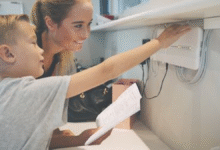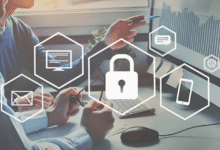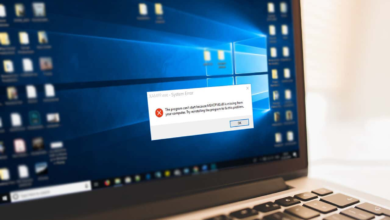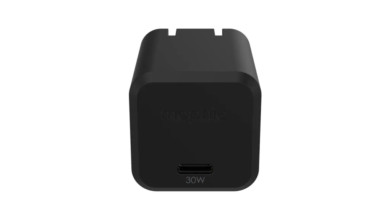Using Standard Technology to Practice Self-Care

In today’s fast-paced world, finding time for self-care can often feel like a luxury we can’t afford. However, with the integration of standard technology into our daily routines, self-care becomes more accessible than ever before. In this article, we will explore how you can leverage common technologies to prioritize self-care, ultimately leading to a healthier and more balanced life.
Standard Technology to Practice Self-Care
In our hyper-connected world, we often find ourselves overwhelmed with the demands of work, family, and daily life. Neglecting self-care can lead to burnout and various health issues. Fortunately, modern technology offers numerous tools and resources to help us prioritize self-care. Let’s delve into how you can use standard technology to improve your overall well-being.
The Importance of Self-Care
Self-care is a fundamental aspect of maintaining our physical, mental, and emotional well-being. In our increasingly busy and demanding lives, it’s easy to neglect our own needs as we prioritize work, family, and other responsibilities. However, understanding the importance of self-care and making it a priority can have profound effects on our overall quality of life.
- Stress Reduction: Self-care activities, such as mindfulness meditation or spending time in nature, can significantly reduce stress levels. When we take the time to relax and unwind, our bodies release tension, and our minds find relief from the constant pressures of daily life.
- Enhanced Mental Health: Prioritizing self-care is a proactive approach to maintaining good mental health. Engaging in activities that bring us joy and relaxation can reduce the risk of anxiety and depression while promoting positive mental well-being.
- Increased Productivity: Paradoxically, taking breaks for self-care can boost productivity. When we recharge through self-care activities, we return to our tasks with a clear mind and renewed energy, allowing us to work more efficiently.
- Improved Physical Health: Self-care extends to physical health as well. Adequate sleep, regular exercise, and a balanced diet are all essential components of self-care. When we take care of our bodies, we are better equipped to handle life’s challenges.
- Enhanced Relationships: Self-care isn’t just about individual well-being; it also benefits our relationships. When we prioritize self-care, we are better able to show up for our loved ones, both emotionally and mentally.
- Resilience: Engaging in self-care practices builds emotional resilience. It equips us with the tools to cope with stress, setbacks, and unexpected challenges, making us more adaptable and less susceptible to burnout.
- Quality of Life: Ultimately, self-care contributes to an improved overall quality of life. It allows us to savor the moments, find contentment in the present, and cultivate a sense of balance and fulfillment.
Read More: Top 10 Health Tech Companies to Watch in 2023
Setting the Foundation: Digital Detox
Before we dive into the benefits of technology-enabled self-care, it’s essential to address the need for a digital detox. Unplugging from our screens periodically allows us to reconnect with the real world, reduce digital distractions, and create space for self-care activities.
Mindfulness Meditation Apps
Mindfulness meditation has been proven to reduce stress and improve overall well-being. Several apps, such as Headspace and Calm, offer guided meditation sessions that can be accessed anytime, anywhere. These apps help you incorporate mindfulness into your daily routine.
Fitness Tracking Devices
Staying physically active is a fundamental aspect of self-care. Wearable fitness trackers like Fitbit and Apple Watch help you monitor your activity levels, set fitness goals, and track your progress. They provide motivation to stay active and lead a healthier life.
Virtual Health Consultations
Standard Technology: Telehealth has revolutionized healthcare access. You can now consult with healthcare professionals from the comfort of your home using video conferencing apps. This convenience ensures that you prioritize your health without the hassle of physical appointments.
Healthy Eating with Meal Planning Apps
Standard Technology: Eating well is a form of self-care. Meal planning apps like MyFitnessPal and Yummly help you create nutritious meal plans, track your calorie intake, and discover healthy recipes. These apps simplify the process of maintaining a balanced diet.
Sleep Tracking and Improvement
Standard Technology: Quality sleep is crucial for overall well-being. Sleep tracking apps and devices, such as the Oura Ring and Sleep Cycle, monitor your sleep patterns and offer insights on improving sleep quality. Better sleep leads to increased productivity and reduced stress.
Online Support Communities
Standard Technology: Connecting with others who share your struggles and goals is essential for emotional well-being. Online support communities and forums provide a safe space to discuss personal challenges and receive support and advice from like-minded individuals.
Relaxation and Stress Reduction through VR
Standard Technology: Virtual reality (VR) technology can transport you to peaceful and relaxing environments, offering a break from the stresses of daily life. VR relaxation apps and experiences provide an immersive way to unwind and reduce stress levels.
Time Management and Productivity Apps
Standard Technology: Effective time management is a key component of self-care. Productivity apps like Todoist and Trello help you organize tasks, set priorities, and manage your time efficiently, reducing feelings of overwhelm.
Digital Journaling for Emotional Well-being
Standard Technology: Journaling is a powerful tool for self-reflection and emotional processing. Digital journaling apps like Day One and Journey make it easy to record your thoughts and feelings, promoting self-awareness and emotional well-being.
Self-Care on Social Media
Standard Technology: Social media platforms are often criticized for their potential to contribute to stress and anxiety. However, when used mindfully and purposefully, social media can also be a valuable tool for self-care. Here are some ways in which you can practice self-care on social media:
- Curate Your Feed: Start by curating your social media feed to include content that inspires and uplifts you. Follow accounts that share motivational quotes, positive stories, and content related to your interests and hobbies. By surrounding yourself with positivity, you can enhance your online experience.
- Limit Screen Time: Excessive time spent on social media can lead to feelings of inadequacy and FOMO (Fear of Missing Out). Set limits on your daily screen time to avoid getting caught in the endless scroll. This can free up time for other self-care activities.
- Mindful Scrolling: Instead of mindlessly scrolling through your feed, practice mindful scrolling. Take a moment to reflect on how each post makes you feel. If it brings you joy or inspiration, engage with it. If it invokes negative emotions, consider unfollowing or muting accounts that consistently post content that affects your well-being negatively.
- Engage in Positive Discussions: Use social media to engage in positive discussions and activities related to self-care. Join groups or communities that focus on well-being, mental health, or hobbies you enjoy. Participating in these conversations can provide support and a sense of belonging.
- Digital Detox Days: Just as you set aside time for a digital detox from standard technology in general, consider having digital detox days on social media. Take a break from posting and scrolling to disconnect and recharge.
- Practice Gratitude: Use your social media platform to practice gratitude. Share posts about the things you’re thankful for, celebrate your achievements, or express appreciation for your loved ones. This can shift your focus towards positivity.
- Set Boundaries: Establish clear boundaries for your social media usage. Avoid checking social media during meals, before bedtime, or in the early morning. Setting these boundaries can help you maintain a healthier balance between online and offline life.
- Unplug When Needed: If you find that social media is consistently affecting your mental health negatively, don’t hesitate to take extended breaks or even temporarily deactivate your accounts. Your well-being should always come first.
- Support Others: Social media can also be a platform for supporting others. Offer words of encouragement, provide a listening ear, or share resources that can help someone going through a difficult time. Acts of kindness can be a form of self-care as well.
Setting Boundaries in the Digital Age
Standard Technology: To fully embrace self-care, it’s crucial to set boundaries with standard technology. Establish screen-free zones and times, and prioritize face-to-face interactions with loved ones to maintain a healthy balance between the digital and real worlds.
Read More: The Future of Self-Driving Cars: Opportunities and Challenges 2023
Conclusion
Incorporating standard technology into your self-care routine can be a game-changer. From mindfulness meditation apps to fitness trackers and virtual reality experiences, these tools empower you to prioritize your well-being in a world that never stops. Remember that self-care is not selfish; it’s a necessary investment in your health and happiness.
FAQs
1. Can I use multiple self-care apps simultaneously?
Yes, you can use a combination of self-care apps to address various aspects of your well-being. Just ensure they complement each other and don’t overwhelm you.
2. Are there any free self-care apps available?
Many self-care apps offer free versions with basic features. You can start with these before considering premium subscriptions.
3. How can I ensure a digital detox is effective?
Set specific times each day or week for your digital detox, and use that time for offline self-care activities or hobbies.
4. Is virtual reality safe for relaxation?
Yes, virtual reality relaxation experiences are designed to be safe and enjoyable. However, it’s essential to use them in moderation.
5. How can I maintain a healthy balance between technology and self-care?
Setting boundaries and being mindful of your screen time are essential. Regularly assess how standard technology impacts your well-being and adjust accordingly.











